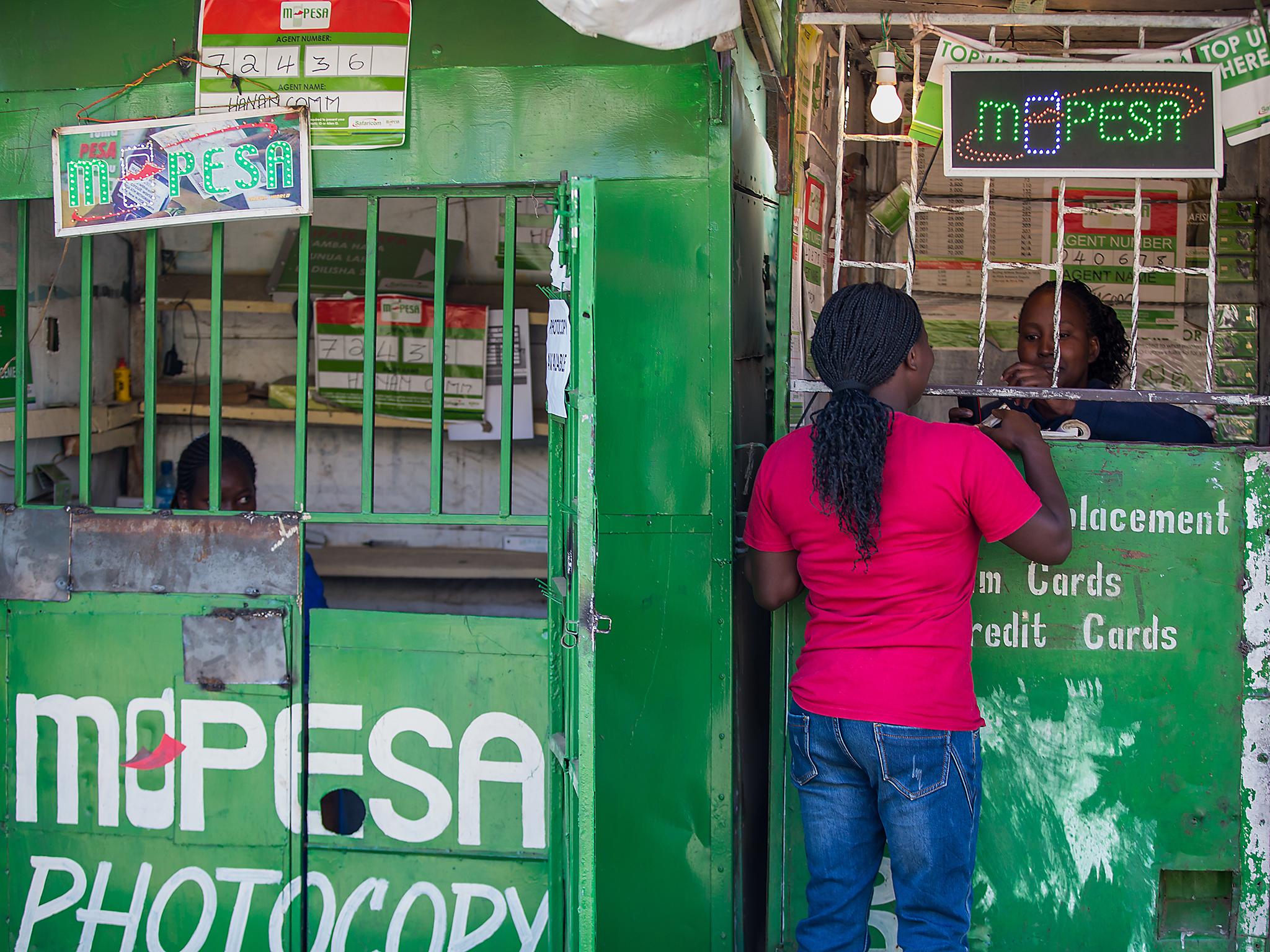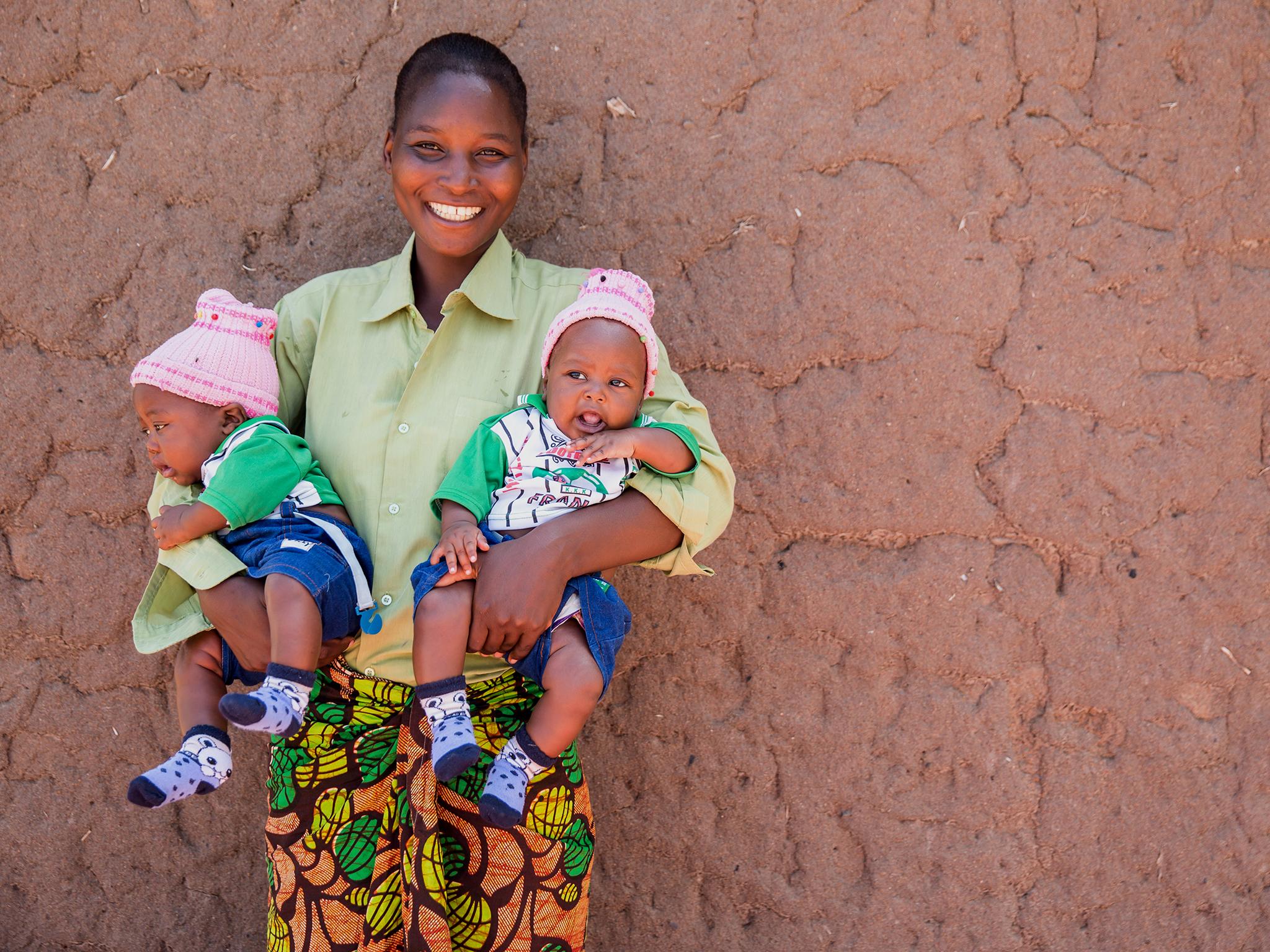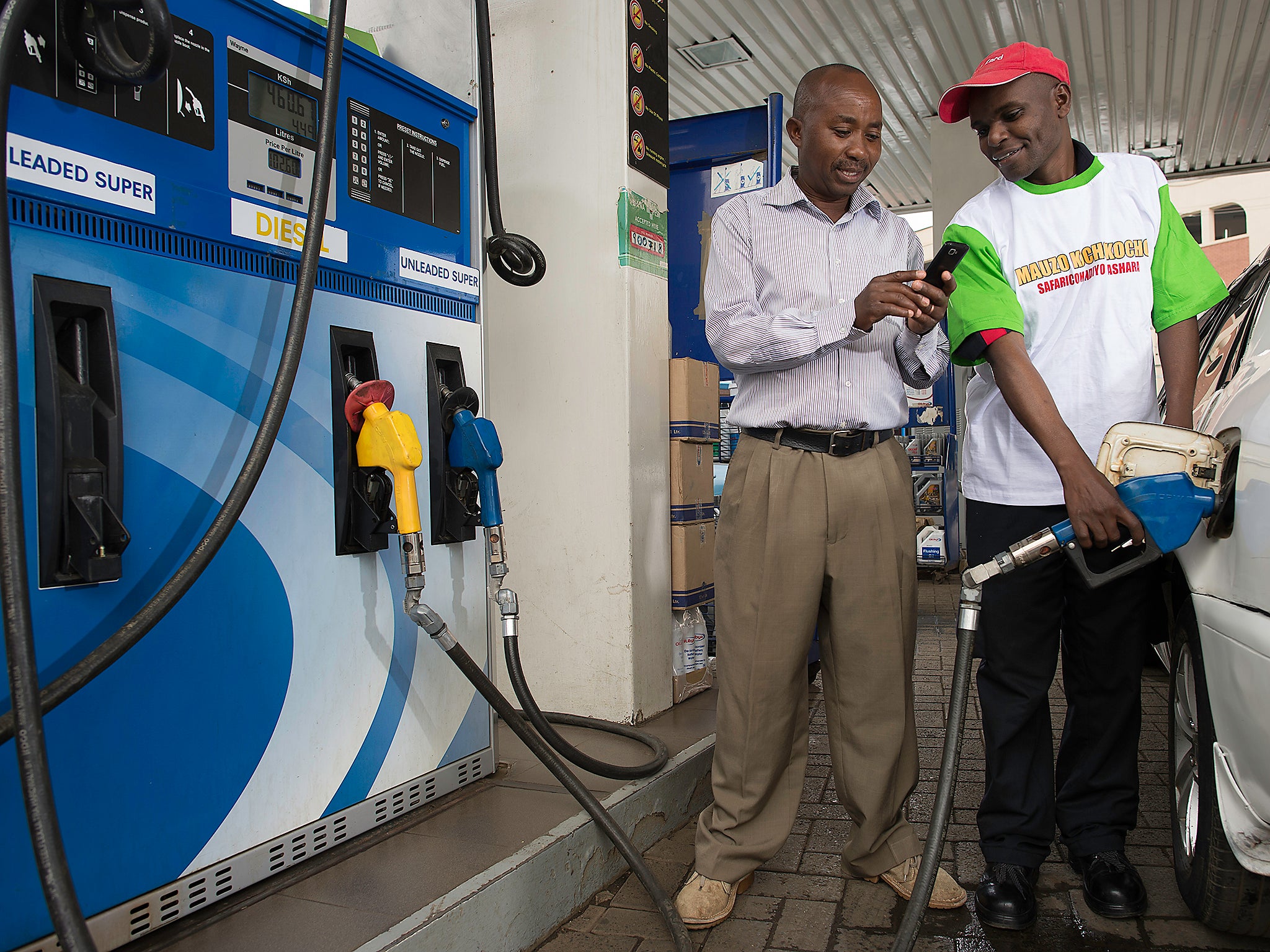M-Pesa power to the people: A cheap mobile phone is transforming the lives of East Africans
People in Kenya used to keep their savings under the mattress, or buried in a hole in the ground. Now, with the M-Pesa mobile phone device, 14 million bank accounts have been opened. It's a revolution that has empowered tens of millions of people in some of the poorest communities in the world to start businesses and gain financial security

Felista works in Nairobi as a domestic cleaner, far away from her family who live in rural Kenya. It’s a common enough situation; young people have to find work in the cities but their families stay on their farms or in their homes far from the urban centres, and those who have left for work send back money to help them survive. In some cases, like with Felista’s brother, it’s to pay for school fees. But sometimes the money they send can be more urgently needed, as when Felista’s mother became seriously ill and her hospital treatment needed paying for.
A decade ago, that would have involved sending physical wads of cash back with a bus driver, something that could have taken days. Felista says: “If I was sending the money back by public transport, my mother might not have made it.”
Instead, she used M-Pesa. Little-known outside the developing world, M-Pesa is a mobile phone-based money transfer service that celebrates its 10th anniversary this month. In the West we’re used to banking by smartphone app and buying items through Apple Pay or Google Wallet. But while that is convenient for us, in Africa and beyond it’s a life-saver. M-Pesa is an initiative launched in 2007 by the mobile phone giant Vodafone and its international partners, initially Safaricom, the Kenya-based company.

At first the service was created to facilitate the application for and payment of microfinance loans, using basic SMS message transactions. However, it became apparent that people who were taking on these small loans had discovered they could use the facility to send money to other people, which got Safaricom CEO Michael Joseph thinking about the wider applications of the technology. Let’s be clear; this is not hi-tech internet banking we’re talking about. M-Pesa uses simple text messaging to transfer money and can be used on the most basic mobile handset. Which was important in Kenya; a decade ago only 12 per cent of the population had access to an actual bank, with branches tending to be found only in cities and sometimes totally absent from rural areas. But at the same time, 80 per cent of people had a mobile phone. Michael Joseph is now Vodafone group manager of M-Pesa, and he says it’s a technology revolution in Africa akin to the building of the railways that opened up the country. He says: “Until we tapped into the market there were huge numbers of people who had no access at all to financial services.”

In the early days, people who received money through the M-Pesa system would go to their nearest registered location and take out the cash. But now it can be used to actually pay for goods and services, just like Apple Pay and similar Apps, and crucially has encouraged more people to use traditional financial services. Naturally, the banks were sceptical about M-Pesa when it was launched. But the people the service was targeting were those who were ignored by the traditional banking system, because they had no access to branches and only small amounts of money. Joseph says: “It used to be that in Kenya people kept their savings under the mattress, or buried it in a hole in the ground, or stuck it up a tree. Then we introduced the ability for people to save money sent through M-Pesa and there were 14 million bank accounts opened practically overnight. ”
M-Pesa employs agents – more than 287,000 of them worldwide – who put the money on users’ mobile phones and help them send it to their families or use it to pay for services and items. A decade on, there are now 10 countries using M-Pesa: As well as Kenya, it’s growing in Albania, the Democratic Republic of Congo, Egypt, Ghana, Lesotho, Mozambique, Tanzania, India, and Romania. During December last year alone there were a 614 million individual transactions processed through M-Pesa… 529 transactions every second. Joseph says: “It’s a revolution that has empowered tens of millions of people in some of the poorest communities in the world to start and grow businesses and gain greater financial resilience.”
It also allows people to be less likely to fall victim to robbery, burglary and corruption in cash-only transactions. A recent study carried out by the Massachusetts Institute of Technology and published in the journal Science said that M-Pesa is responsible for lifting many households above the poverty line, particularly those headed by women. According to the study, poverty fell by 22 per cent within a kilometre of where six M-Pesa agents set up shop. Of course, Vodafone doesn’t operate the service purely for philanthropic reasons. Around one percent of every transaction is shared between the company and the agents and associated partners who facilitate the service. But catering to the world’s poorest and most disenfranchised is always going to fall more on the corporate responsibility side of the balance sheet than making a quick buck.

Indeed, according to Joseph it was a long haul to get M-Pesa first established, something that might have put off other communications companies from entering the market. There are some companies that have dipped a toe into the water, such as Orange, but Joseph says M-Pesa is “the most successful in the world”. With a whopping six billion transactions during 2016, it’s hard to argue with that claim. Indeed, is it something that could actually be useful in the UK? “It is tempting to launch it in the developed world,” says Joseph. “It could be useful to, say, migrant labourers or refugees, who might not have immediate access to bank services. But the challenge is that in Africa, for example, it’s a volume game; it’s the huge numbers of people who use the service who allow us to keep the rates right down. In the UK, perhaps, there would not be the same numbers to provide that broad pyramid base of users.”
The social responsibility side of the service, through the phone company’s charitable arm, the Vodafone Foundation, is constantly finding new ways to benefit people. In Tanzania, M-Pesa is used to distribute expenses and hospital transport costs to allow 1,000 mothers a year who suffer from the post-natal condition obstetic fistula to access free surgery. In Lesotho, mobile health clinics use M-Pesa to fund patient transport and to bring primary care to the most outlying rural villages. Andrew Dunnett, director of the Vodafone Foundation, says, “M-Pesa is a critical component of many of the Vodafone Foundation’s core health services. These services dramatically improve quality of life and in many cases save lives, particularly in some of the remote and isolated areas that we serve. ”
Which is something Felista knows all too well. “M-Pesa saved her life,” says Felista of her mother. And more than that, it’s given Felista a renewed sense of purpose through sending money home for her brother’s education. She adds: “The last time I was home I had a conversation with my brother that made me say ‘Wow!’ He is thankful for everything I’ve done and wants to return the help. “He makes me want to work hard. Before that I felt I was on the floor, I had nothing, and now things are good.”
Read More: Compare contract providers and find the best deal for you with our Mobile Phone Deals page
Join our commenting forum
Join thought-provoking conversations, follow other Independent readers and see their replies
Comments
Bookmark popover
Removed from bookmarks